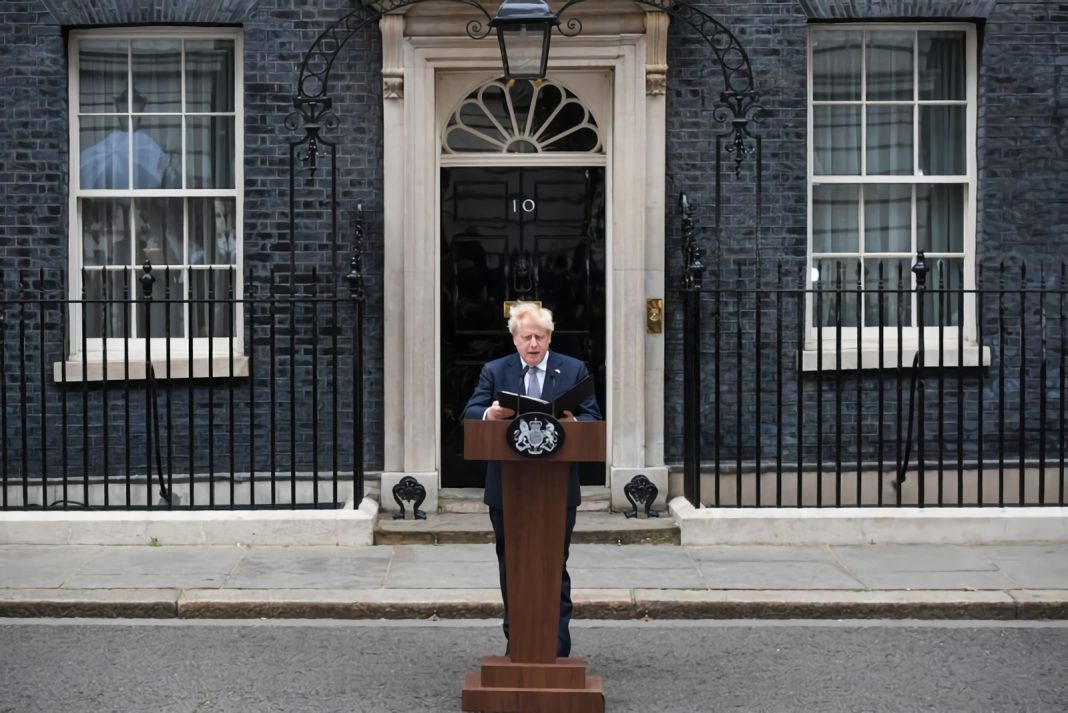The difficulties created by outgoing British Minister Boris Johnson have hurt the Conservative Party with the voters. The crisis of confidence that has engulfed the outgoing PM has raised questions about how much long-term damage his tenure has done to the party (. Boris Johnson’s resignation happened after he ruined the country and his successor will be facing the challenge of a lack of trust by the people and confidence in their government. This is a legacy left by Johnson for the next government.
Johnson Repeatedly Distorted the Truth
Chancellor of the Exchequer Rishi Sunak and Health Secretary Sajid Javid were the first high-ranking officials to resign. As the New York Times reported, their resignations appeared to be a coordinated move against the Conservative Party leader. They both quit over a fresh scandal that once again raised questions about Mr Johnson’s judgement and integrity.
The latest crisis centres on Conservative lawmaker, Chris Pincher, who was a minister in Mr Johnson’s government. Last week, Mr Pincher quit his government post after a drunken night out during which he is accused of having groped two men. Later, it emerged that there had been similar allegations against him previously.
For days, the government insisted that Mr Johnson had no knowledge of any prior accusations when he appointed Mr Pincher. Later, it became clear that Mr Johnson was lying. Downing Street said there had been no formal complaint against Mr Pincher. It then became clear that there had been a formal complaint, and Mr Johnson knew about it. On Tuesday, Sir Simon McDonald publicly accused the government of repeatedly distorting the truth. Sir Simon McDonald is a former top civil servant at the Foreign Office.
Cabinet Resignations Lead to Boris Johnson’s Resignation
Boris Johnson’s resignation took place after more than 50 Members of Parliament resigned from his government within 48 hours (CNBC). Just a month ago, Mr Johnson survived a no-confidence vote by his fellow Conservative lawmakers. The confidence vote came after a series of scandals but was survived by Mr Johnson. Conservative MPs cannot call for another no-confidence vote for another year unless the party’s rules are changed. Therefore, pressure to resign from within his own government was the only effective method of forcing him out. Cabinet resignations were a move to force Mr Johnson to resign (the New York Times).
Boris Johnson resigned after he dramatically lost the support of his ministers and most Conservative lawmakers (Reuters). His resignation was the result of scandals which caused his cabinet to lose confidence in him. It is noteworthy to say that many of Johnson’s Conservative MPs said they had no confidence in him in June, when around 40% voted against his leadership (Forbes).
Frontrunners to be the Next PM
Among the candidates for premiership, we can see former Chancellor Rishi Sunak, the Chair of the Commons Foreign Affairs Select Committee Tom Tugendhat and Attorney General Suella Braverman. Former Equalities Minister Kemi Badenoch has also declared her intention to run as party leader. She said she would “Cut the size of the state and rule over a limited government focused on essentials”. Rishi Sunak has said he is “Truly overwhelmed” by the support he has received for the Conservative Party leadership (Sky News).
Do people trust the candidates? The important issue is rebuilding confidence among the people. What qualities do people expect the next prime minister to have? According to Cornwall Live, Cornish MP Derek Thomas has launched a survey about the next prime minister. The survey asks constituents what qualities they would like to see in the next prime minister. Mr Thomas was one of the 148 Tory MPs who voted against Mr Johnson during the vote of no-confidence.
Can the Next PM Handle Britain’s Economic Crisis?
Boris Johnson’s resignation should have taken place much earlier. Now, Britain is facing a serious economic crisis. Can the next prime minister rescue the country? As ZAWYA reports, Britain’s economy is facing rocketing inflation, high debt, and low growth. People are coping with the tightest squeeze on their finances in decades. There is also growing industrial unrest with widespread strikes by rail workers. Moreover, others including teachers and healthcare staff are also threatening walkouts and Britain continues to remain in a bitter standoff with the European Union over trade rules for Northern Ireland in the Brexit deal.
Final Remarks
Political pressures have finally led to Boris Johnson’s resignation. The next PM will face the challenges of leading the Conservative Party through an internal political crisis. The newcomer also has other challenges to face. New Brexit arrangements, the situation in Northern Ireland, and the crisis with Russia and its impact on energy prices and supplies are some of these. Moreover, Johnson lost public support and the support of his party due to his own wrongdoings (EFG). All these challenges will be difficult for the next prime minister to deal with in the new position.
The next prime minister will take the helm as the UK is engulfed in a cost-of-living crisis. They will have to reunite a fractured Conservative Party and attempt to rebuild support among voters (Border Counties Advertizer). Rishi Sunak released a video in which he set out his family history. He also said: “Our country faces huge challenges, the most serious for a generation.” Mr Sunak has thrown his hat into the ring to become Tory leader with a promise to rebuild trust (Thurrock Gazette). Mr Sunak’s words show that people do not trust British officials due to the wrongdoings of Boris Johnson.

